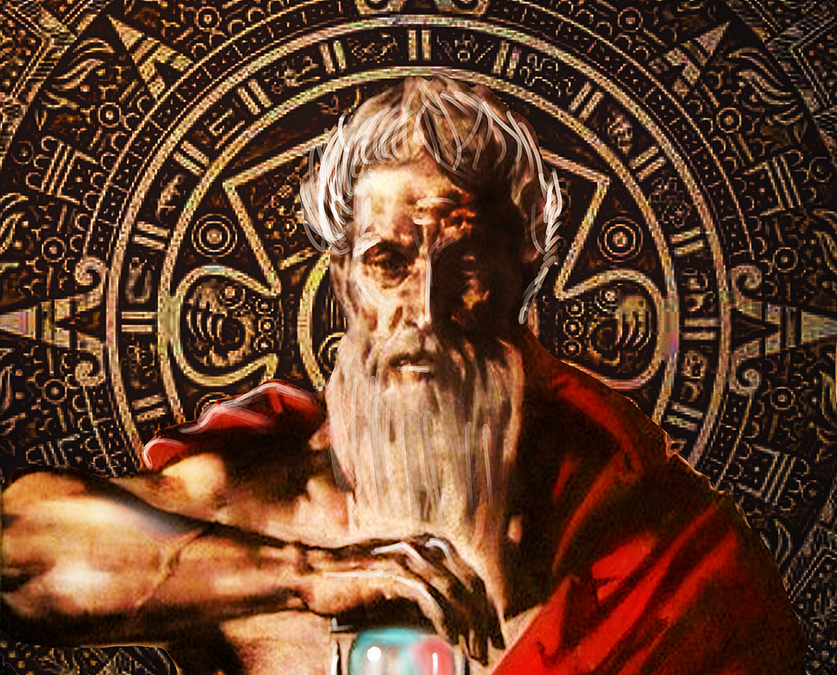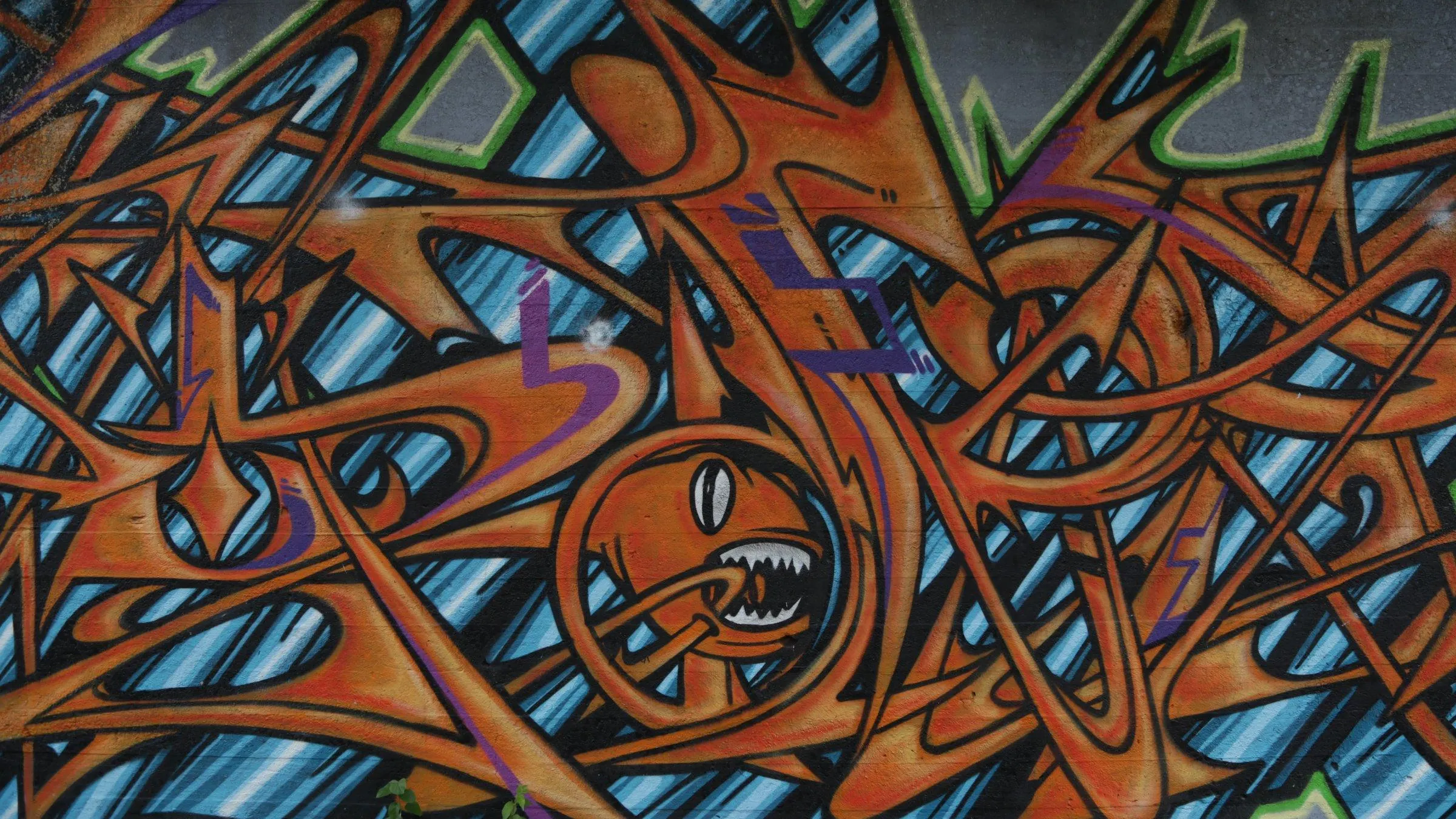There are only two things in the world, ‘the truth’ and ‘the lie’ and we human beings spend all our time, and all of our energy, insisting that ‘our favourite lie’ is in fact the one and only truth. Historically speaking, what else have we ever done? What else have we ever cared about?
It is of course hardly surprising that we put a lot of energy into claiming that our lies are in fact true – a lie couldn’t be anything at all if we didn’t keep on saying that it was true. Lies can’t stand up on their own two feet – if they could then they wouldn’t be lies! Only the truth doesn’t need propping up – everything else needs to be aggressively promoted on a full-time basis.
It’s hardly surprising that we put so much energy into our own particular patented ‘versions of the truth’ (since that is the only way they can be kept ‘viable’) but what isn’t so easy to understand is why we would have to go down this road in the first place. Why – we might ask – do we end up as the slaves of our own ‘out-of-control narratives’? Why do we always end up ‘living the lie’ rather than simply living ‘life as it actually is’?
The simple answer is of course to say that we put all our energy into propping up (or developing) the fiction because that’s the easiest thing to do. We start off in a particular way, with a particular slant, according to a particular set of rules, and it’s far, far easier to continue in this particular way than it is to discontinue or drop it. There is a precedent and it is easier to go along with the established precedence than it is to venture forth into ‘The Great Unknown’ without it. ‘Venturing forth into the unknown’ is the difficult thing; ‘continuing with the old’ is infinitely easier. It’s ‘infinitely easier’, but it’s also infinitely redundant…
We are attached to our particular way of ‘doing life’ – we might say – and the consequence of this attachment is that we would rather stick with our established way of doing things even if it is causing problems for us. We might try to modify or adapt or ‘improve’ (a favourite word of ours!) our approach, our angle, our strategy, but dropping it entirely isn’t just something we see as being ‘difficult’ but something completely unthinkable. This – for us – is a frankly terrifying possibility.
It is for this reason that we go around validating our particular approach on a more or less continuous basis, rather than taking the time to reflect on it or examine it. This is a bit like ‘never questioning the sacred dogma because we know on some level that everything is going to fall to pieces if we do’. We have to have something to hang it all on, after all, and at the end of the day it doesn’t in the least bit matter to us what it is. Or – as we could also say – it doesn’t really matter to us if it’s true or if it’s not true. We can’t allow ourselves to see this of course – we can’t allow ourselves to see that we don’t really care if what we’re clinging to is actually valid or not because such an awareness – needless to say – would defeat the whole purpose of the exercise.
So, we validate our particular angle or approach by saying that is ‘the right one’, rejecting the awareness thereby that anything at all would do us, just as long as it gives us something to hold onto and feel comfortable about. This awareness – the awareness of the ‘essential relativity of all possible viewpoints’ (or the ‘essential relativity of all statements that we might possibly make about the world’) is something none of us want to have anything to do with. Far from being pleasantly comfortable for us, awareness of this sort of ‘infinite relativity’ is ultimately uncomfortable.
Just as long as we want to remain ‘comfortable’ therefore, we are obliged to keep on validating our core assumptions to ourselves – we can’t ever stop, we can’t ever take a break. Essentially, we have to continuously affirm to ourselves that ‘the Known’ (or ‘the Familiar’) is the one and only truth, which means that we have to see everything else as a threat, as something to be fought against tooth and nail. We become ‘staunchly neophobic’, in other words. We make sure to frame our neophobia (our conservatism) in terms of ‘protecting some great Value’ – which flatteringly casts us in an heroic mode – whilst the less-than-heroic truth is that we are fending off everything that challenges our established way of looking at the world. We are ‘demonizing everything that challenges the status quo’, and what that status quo might happen to be doesn’t matter to us in the least!
Coming back now to what we started off by saying, we can equate ‘the Lie’ with ‘the Known and the Familiar’; the Known and the Familiar is a lie – we might say – because it isn’t a real thing. It’s just a game that we’re playing, a game that we say isn’t a game. It’s an artifact of our blinkered way of apprehending reality. The overwhelming sense of familiarity that we are constantly experiencing in our daily lives gives us the message that what we are so familiar with is totally real, totally ‘bone fide’, but this is just a type of a hoax that we are unwittingly perpetrating upon ourselves. The sense of certainty that we are so inundated with is nothing more is a total illusion, a total illusion that we create for ourselves by ‘refusing to take on any perspective on the matter under consideration’. We only allow ourselves to look at things in the one way, in other words.
Another way of putting this would simply be to say that the ‘nest’ which is made-up of the Known and the Familiar is nothing other than the common-or-garden self, which is only real (or central) to us because we refuse point blank to look beyond it. This is how the everyday sense-of-self comes into being – as a result of our inflexible conservatism, as a result of our die-hard neophobia, as a result of our obstinate self-imposed ‘ignorance’. By never having anything to do with ‘the New’, but only with the established and the familiar, we ensure the continued existence of ‘who we think we are’; what we’re protecting here is therefore nothing more than this sense of there being such a thing as ‘the Known and the Familiar’ when there absolutely isn’t. What there is, is ‘the entropy-shadow that is cast by our stubborn refusal to look at the world in any other way than the way we already do look at it’; what there is – in other words – is simply ‘a dense fog of unfounded familiarity’ and it is within this dense entropic fog that our lives take place…
If ‘the Lie’ which we started off speaking of is ‘the Mind-Created self’ (or the spurious sense of certainty / security that is created by us making sure never to look beyond what we have already said is true) then ‘the Truth’ is the lack of any sense of certainty or security, the lack of this Mind-Created Self, the profound absence of this Mind-Created Self, and this scenario just happens to be something that we have precisely zero interest in ever finding out about…
Image – walllhere.com






